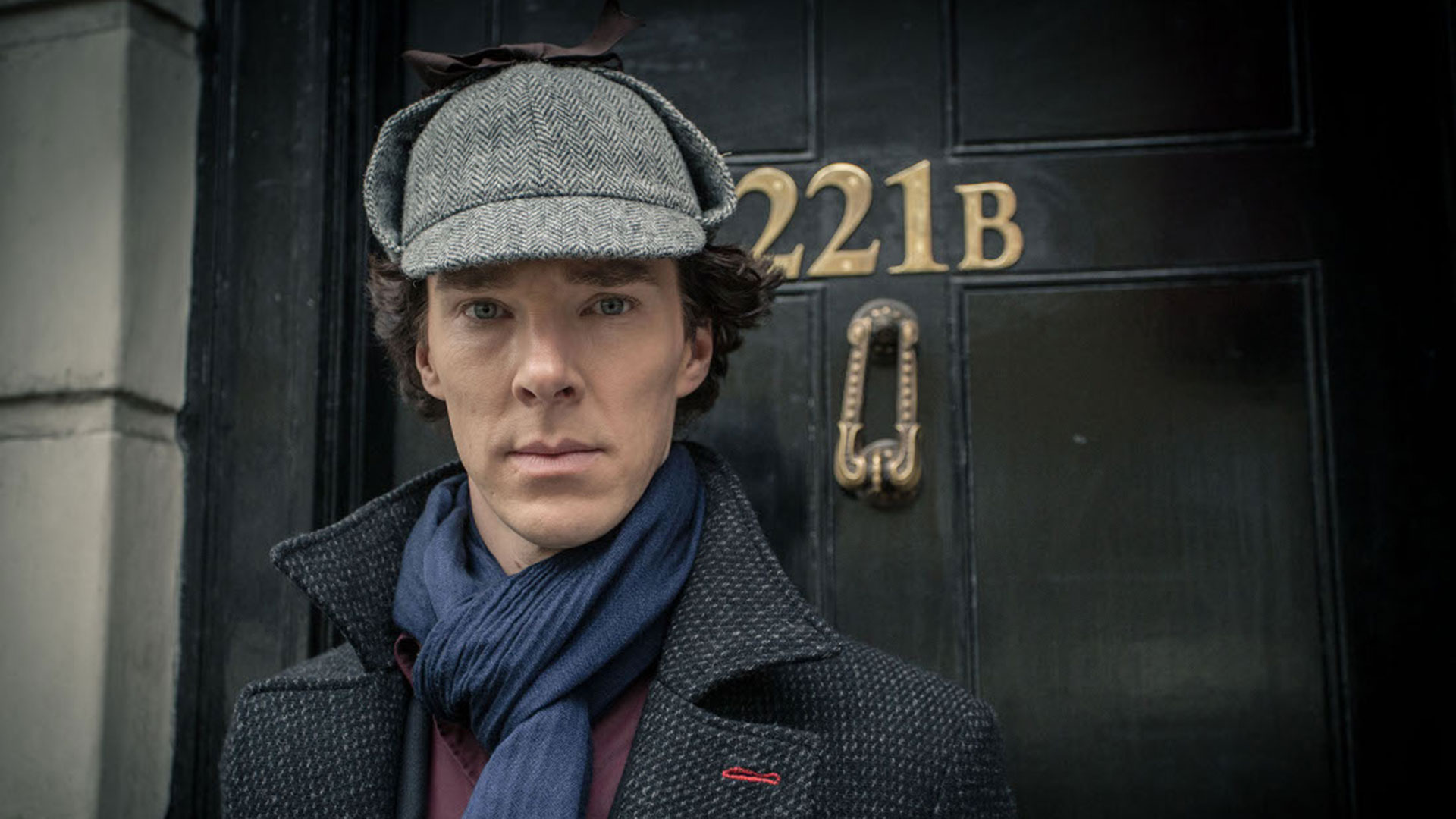Sherlock lives! And judging by viewing figures in excess of 10 million and Twitter going wild to the tune of 260,000 tweets per hour during The Empty Hearse on New Year’s Day, the return of Benedict Cumberbatch’s lanky sociopathic detective will remain a highlight of 2014.
For the 37-year-old actor, it marks the start of a big, big year. When The Big Issue catches up with him at Charlotte Street Hotel in central London midway through filming the series finale, he looks more like a wealthy holidaymaker than one of the planet’s busiest actors. He bounds in, wearing a crisp white T-shirt, smart blue shorts and blue cloth cap, singing and loosely dancing to the music coming out of a pair of massive headphones…
How are you today, Benedict? I’m actually feeling it a bit this morning. I’ve been doing a hell of a lot of running recently. It’s because I’m playing Alan Turing, who, as well as being an absolute genius, was a very good marathon runner. It’s great, though. I love it. Yep, I’m playing yet another brainy guy.
I didn’t want Sherlock being easily labelled as being either on the spectrum of Asperger’s or autism
And is this role stretching your mind as well as your body? Yes, like you wouldn’t believe! As well as running pretty much all the time, I’m carrying around the most ridiculous selection of books at the moment. But it’s great, and I’m learning so much. I’m loving it. I hope the plates keep spinning, so that I can keep finding these interesting roles and carve out a little niche for myself in the film world. And, you know, keep the work varied. I would love to get back on the stage.
So Sherlock returned on New Year’s Day. It’s trying to flesh him out? There is a lot more backstory. There are a lot more scenes where you find out why he is the way he is. The first conversation I ever had with Steven Moffat about Sherlock was asking: “How did this
happen?” His response was: “What do you mean, he’s just brilliant.” But someone isn’t just brilliant, there is something that has happened. I didn’t want Sherlock being easily labelled as being either on the spectrum of Asperger’s or autism. The reality of those problems and difficulties is very different in each individual case. It would have been lazy for us to just say: “Oh, that is what he is.” So that is examined a lot more in this series. After two years away, he is rusty about human relationships, especially with his best friend and with London. And it takes time for him to get back on his game. Will there be romance? No, no, no – romance is a foreign concept to him. There might be something in the arena of proximity. But there is no romance.
How do you keep him fresh? That is one of the biggest challenges. We throw him into these situations in the 21st century and see how he copes, which is always amusing or revealing. But I think it is even more interesting to understand how he came to be like this, in the 21st century.









